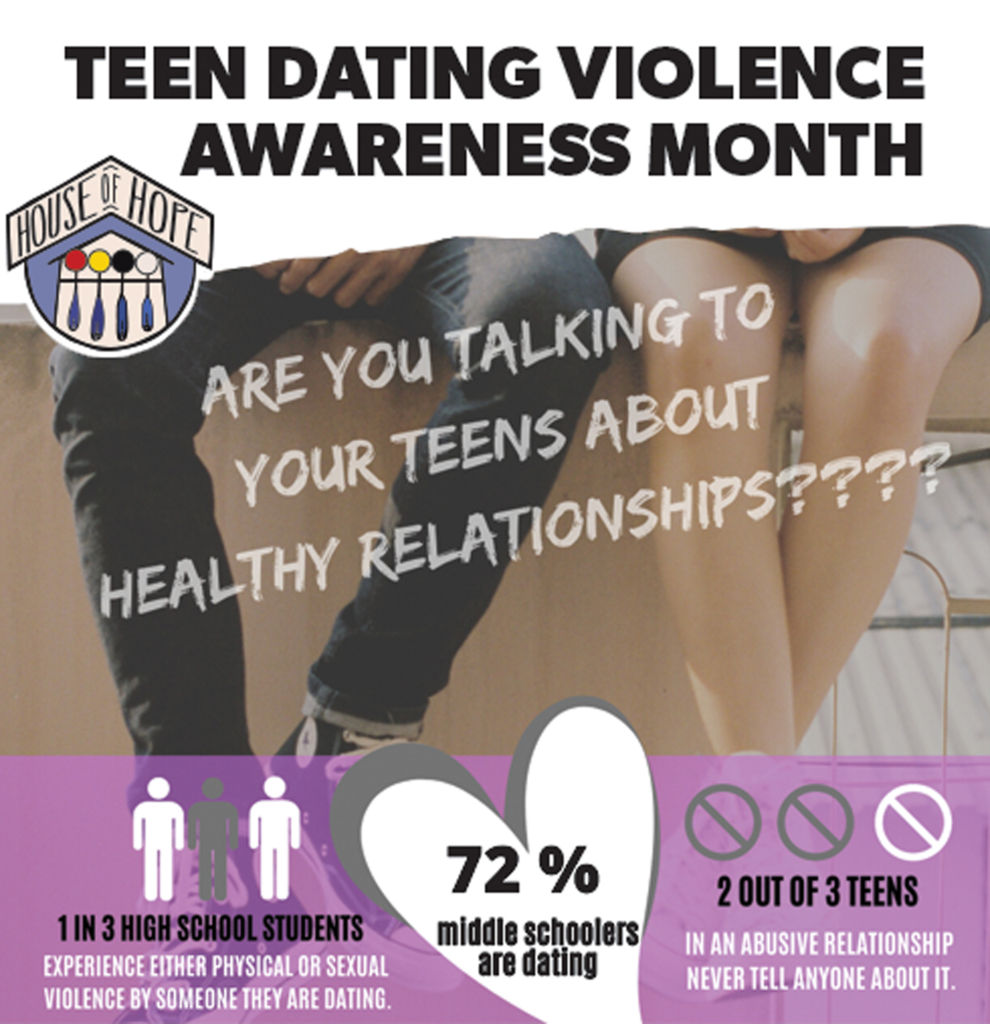
By Kayla Woody, CPN House of Hope DVPI Prevention Specialist
The teenage years can be an awkward time for an individual. There is much to learn about the world and themselves and many changes to face. Relationships and dating often do not come naturally but can improve with experience. These first-time relationships are the foundation for future relationships throughout adulthood.
When most people think of domestic violence, they see it as something that only happens to adults. However, statistics show that youth are more likely to experience violence in their romantic relationships than the rest of the population. The Centers for Disease Control and Prevention released a survey that looked at teen dating and found that 1 out of 11 girls and 1 out of 15 boys have experienced physical dating violence in the past year, and 1 out of 9 girls have experienced sexual dating violence.
Teen dating violence is similar to domestic violence because it is centered around power and control. One partner in the relationship is working to control the other partner through abusive behaviors. There are many different tactics used to maintain control, including isolation, belittling, guilting and manipulation. Many times, when these specific tactics are not providing the power and control that the abuser needs, they turn to physical and sexual abuse.
UNICEF states, “The single best predictor of children becoming either perpetrators or victims of domestic violence later in life is whether or not they grow up in a home where there is domestic violence.”
When a young person is not taught what healthy relationships look like in their home, these unhealthy signs or “red flags” may be difficult to see. These types of behaviors are learned. When children are exposed to these types of behaviors in the home, they begin to see them as normal. They begin to believe this is what love is supposed to look like.
The best way to prevent abuse in teen dating and adult relationships is to provide information about healthy relationships and teach skills to create and maintain healthy relationships. The sooner this information can be provided to our youth, the better chance there is of correcting unhealthy behaviors. Skills that are necessary to create these healthy relationships are appropriately managing feelings and understanding how to communicate in a healthy way.
The CPN House of Hope offers many ways to provide education about healthy relationships and prevention techniques regarding domestic violence, sexual violence and stalking.
If you are interested in providing this type of education to your organization, classroom or group, please reach out to House of Hope to schedule. Find more information about prevention efforts at cpnhouseofhope.com.
If you or someone you know is experiencing intimate partner violence, sexual assault or stalking and would like more information, call House of Hope at 405-275-3176 or visit us online at facebook.com/cpnhouseofhope.
